Parking occupancy detection
Introduction
Parking space is becoming a serious problem due to the day-by-day increase in number of vehicles on the road. In cities with large population, or in places where sports or artistic events are scheduled, we have probably all experienced driving around in circles looking for a parking space. Sometimes, it is very frustrating to find one space.
In order to combat this problem, few cities have implemented a so-called "active parking lot management system", which has the benefits of guiding drivers to open parking spaces, saving time costs associated with parking, efficient parking management, better traffic flow, reduced pollution and energy waste, etc.
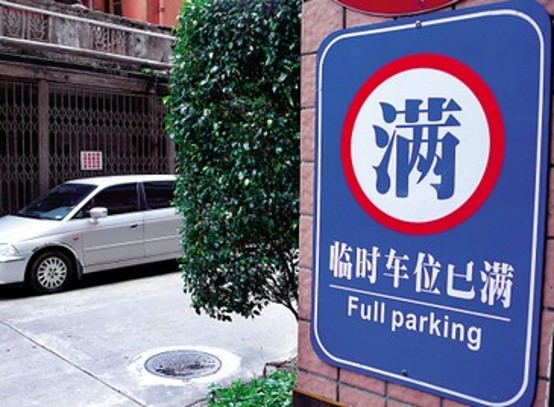
Full parking situation
Parking occupancy detection
The key to active parking lot management is the reliable detection of available parking spaces. It is achieved by wireless sensor in every parking space, which can detect the presence of a car in the space and note the arrival/exit time of a vehicle. Parking lot statuses (occupied or idle) are detected and transmitted to a clould database. This information then be accessed by users through website or mobile APPs to receive real-time updates.
WiiHey has developed a parking lot sensor that is scarcely bigger than a mug cup in terms of its circumference and measures around about three centimeters in height. The sensors are installed in parking garages or on-street parking spaces. The special thing about this product is that the sensors operate wirelessly and are powered by batteries, which eliminates the effort and expense of having to lay cables.
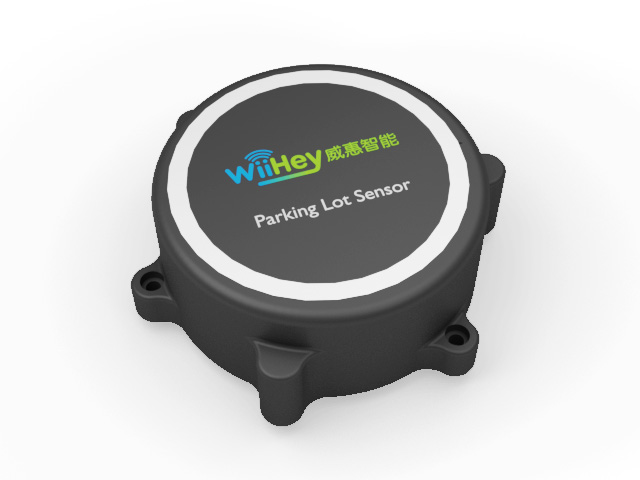
WiiHey parking lot sensor
The working principle of the sensor is an inside magnet-resistive sensor that measures the Earth’s magnetic field. As vehicles come within range of the sensor, changes in the surrounding magnetic field occur and are detected. Each sensor continually monitors the background magnetic field to establish a base reference, allowing self-calibration & self-learning so that it is able to differentiate parking events from other electromagnetic interferences.
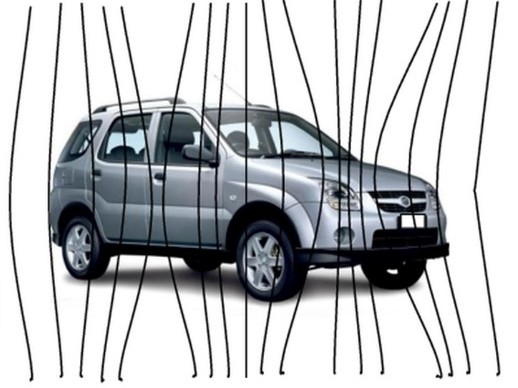
Earth’s magnetic field changing caused by vehicles
Tech specs
- 3-axis magnetic field detection sensor;
- Wireless communications network in NB-IoT and UNB-IoT (868/915MHz);
- Battery life for typical operations: over 5 years;
- Fully sealed with IP68 level protection;
- -32°C to 85°C operating temperature range;
Key features
- Magnetic technology for reliable detection of the occupancy of a parking lot;
- Wireless communication for ease of installation by eliminating civil works;
- Powered by long-life battery with minimal energy consumption of the hardwares;
- Easy integration with existing parking management front-end and back-end systems;
- High-quality, fully encapsulated, dirt resistant;
Benefits
- Live, real-time data on statuses of each and every parking lot;
- Enable driving guidance to available parking spaces, improving the traffic flow;
- Enable best use of available spaces by collecting comprehensive parking information;
- Enable advanced parking services like car locating, overstay reminder, cash-less payment (3 party softwares);
- Simplify parking for drivers, parking lot operators, traffic administrators, etc;
Architecture
The parking lot sensor uses narrow band (NB) IoT communications technology, which combines high transmission ranges of up to several kilometres in urban environments, with low power consumption. Data are then transmitted to cloud services across the IoT network for further processing and delivery into the end-user’s system.
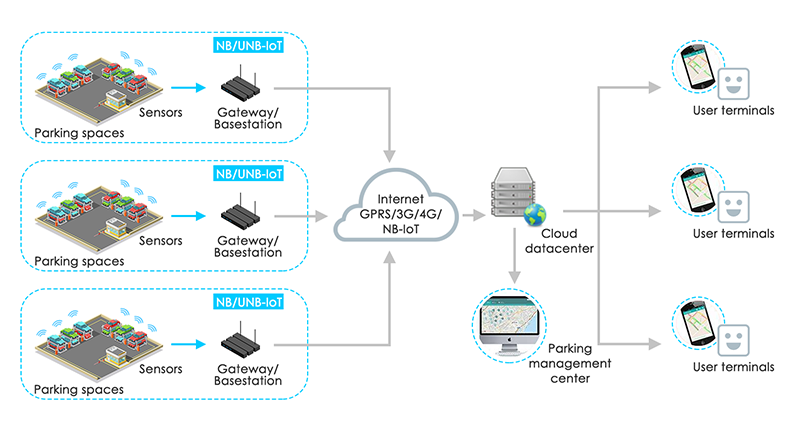
System architecture
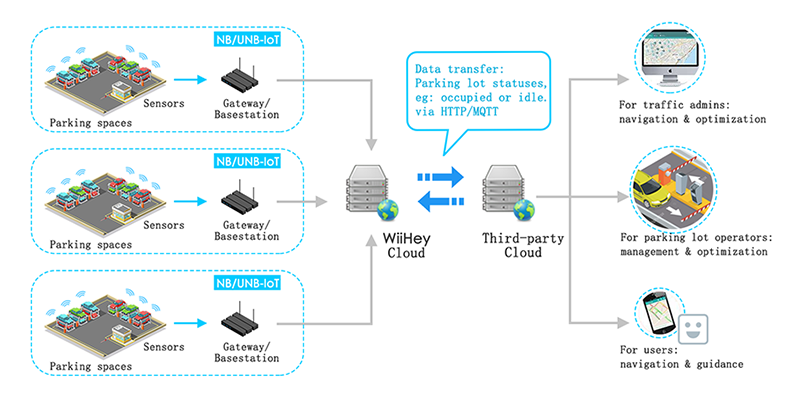
System architecture
(Data transferring with third-part partners)
Hardware installation
Detailed information of parking lot sensor could be found here - WiiUNG Sensor.
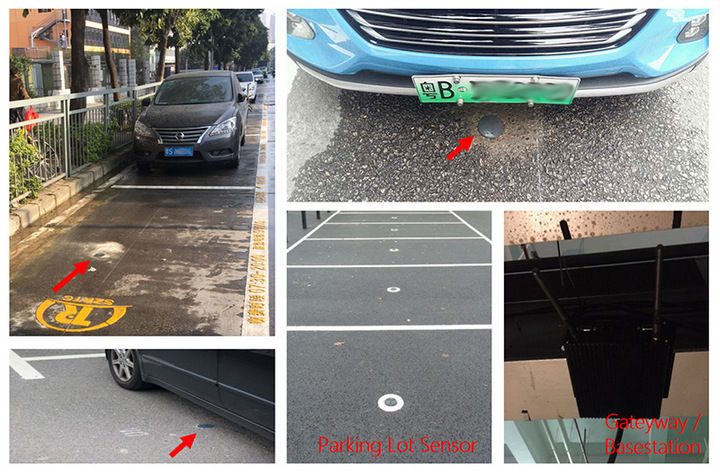
Recess mounted parking lot sensors
Software
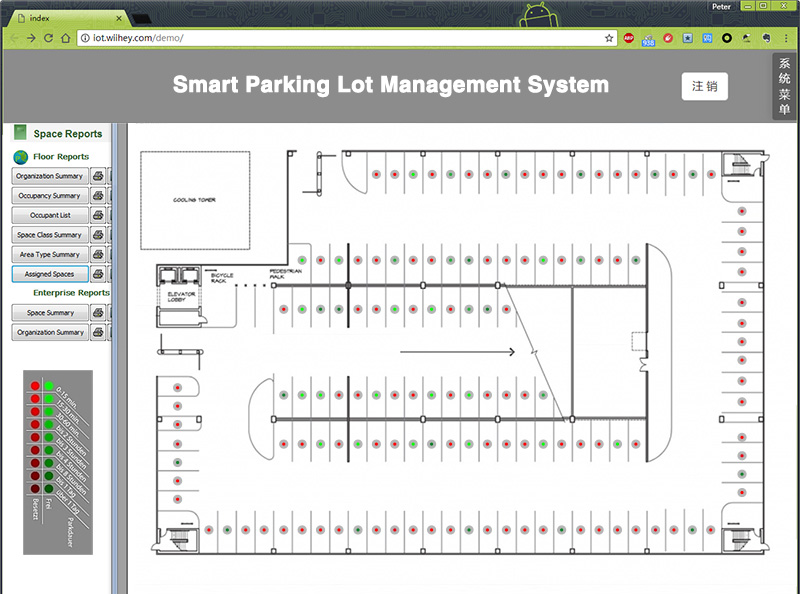
Remote parking space management system
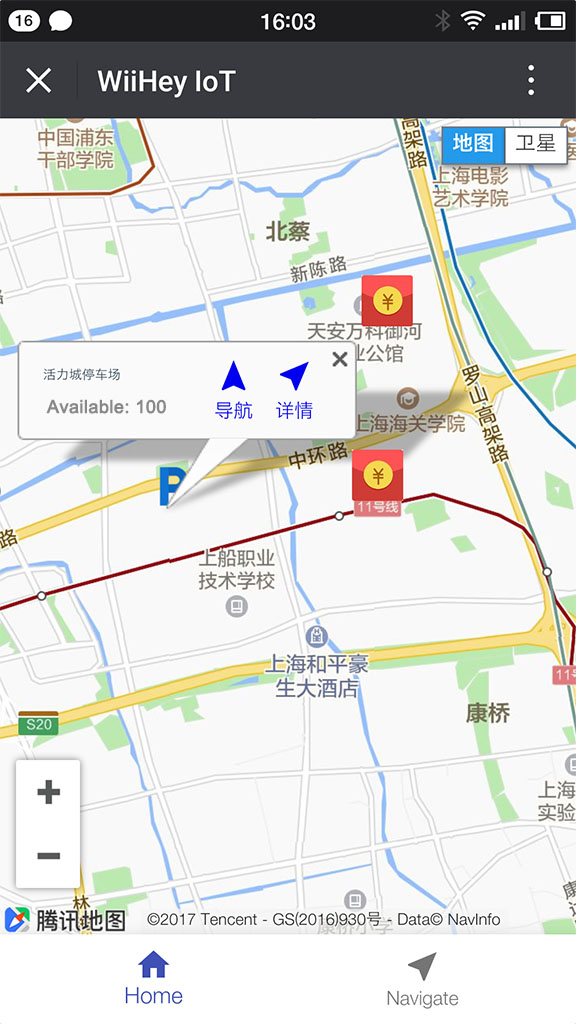
Guidance & navigation on mobile APP
Summery
WiiHey parking lot sensor is easy to install, low-maintenance in-ground vehicle detection sensors gather information on parking space occupancy statuses. The sensors feed data to cloud which can then be used for a range of third-party parking management systems. The data can be used to enable additional smart parking services such as integrated parking guidance, car locating or cash-less payment to further simplify the parking process.
